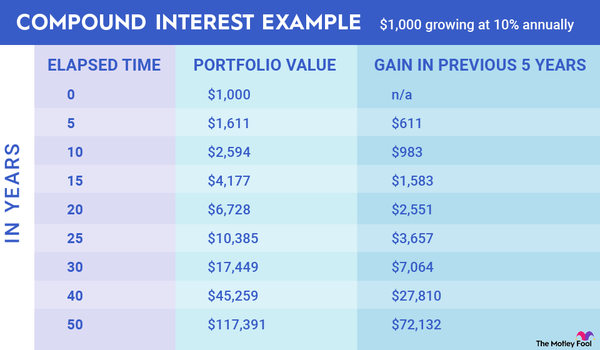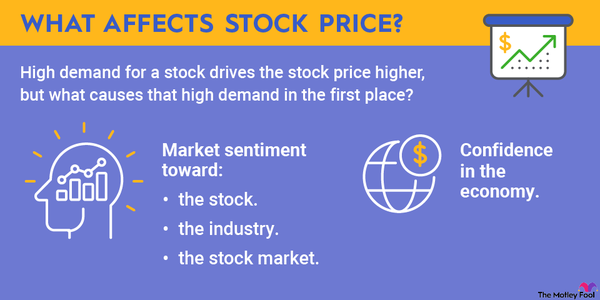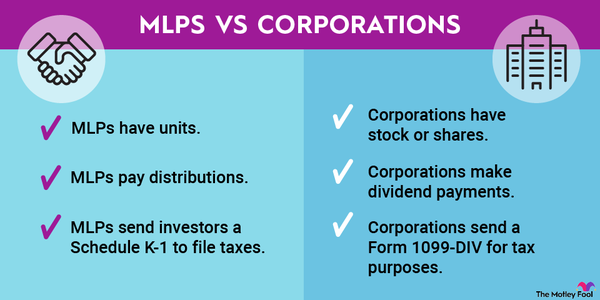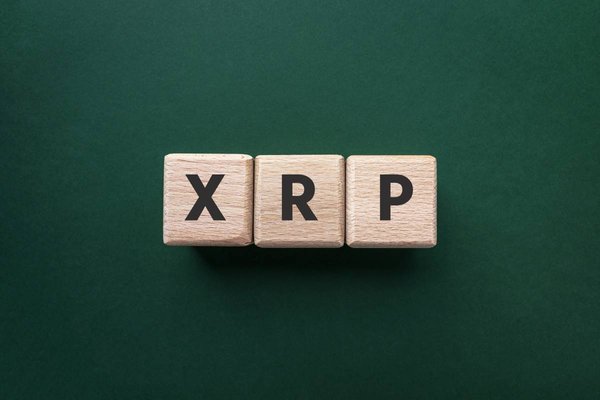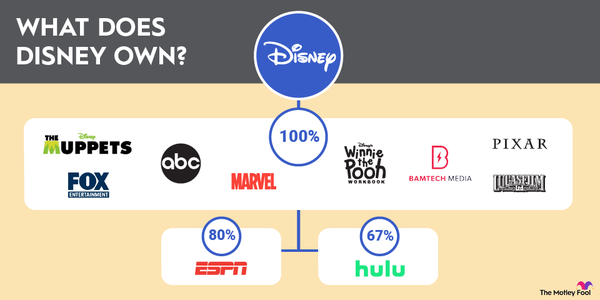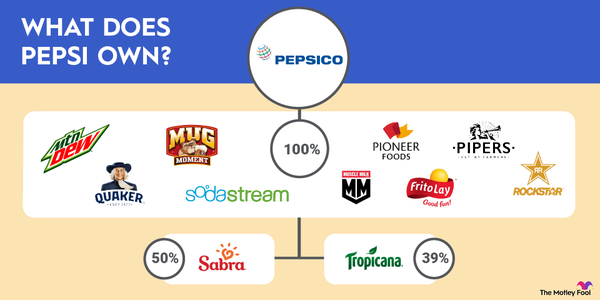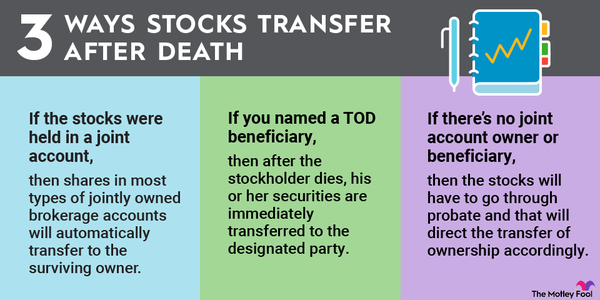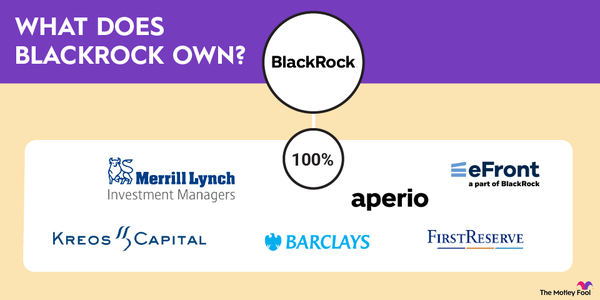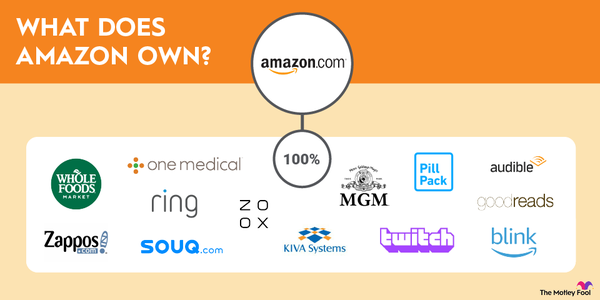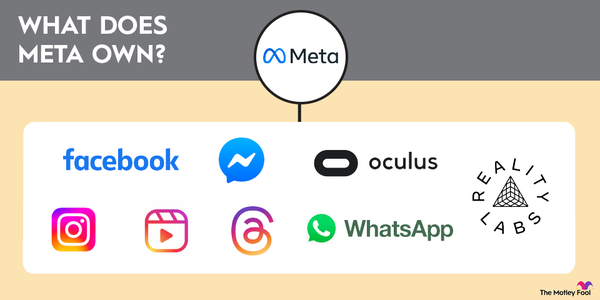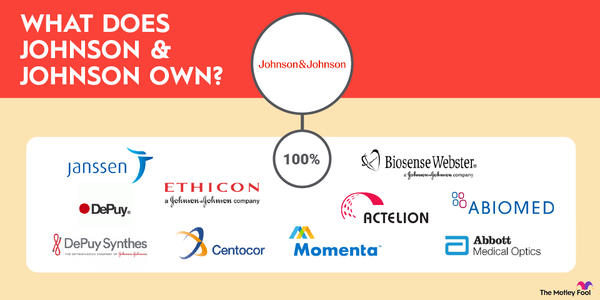3 Most Important Financial Statements
Futures Trading: Everything You Need to Know
Up-and-Coming Stocks: 11 Stocks for 2025
When to Sell Stocks -- for Profit or Loss
Accounts That Earn Compounding Interest
How Many Shares Should I Buy of a Stock?
Selling Stock: Are There Tax Penalties on Capital Gains?
How Are Stock Prices Determined?
What Is a Good Return on Investment?
What is Day Trading? How Does it Differ From Investing?
The Definitive Guide: How to Value a Stock
What Happens When a Stock Is Delisted?
GAAP vs. Non-GAAP: Everything You Need to Know
Should I Buy Stock Now or Wait?
How to Calculate Cost Basis for Inherited Stock
What Are Share Repurchases?
Average Stock Market Return
How to Short a Stock: The Basics of Shorting
What is the Difference Between Simple & Compound Interest?
What Makes a Stock Price Go Up?
How to Pick a Stock for the First Time
Can You Owe Money on Stocks?
How Many Stocks Should You Own?
A Beginner's Guide to Buying Stock
How to Calculate Volatility of a Stock
How to Calculate Total Stock Returns
How to Buy Amazon Stock (AMZN)
How to Invest in Tesla Stock in 2025
How to Buy Microsoft Stock (MSFT)
How to Invest in Nvidia Stock
How to Invest in Disney Stock
How to Invest in Google Stock
How to Invest in Berkshire Hathaway Stock
How to Invest in Johnson & Johnson Stock
How to Invest in Exxon Stock
How to Invest in Facebook Stock (META)
How to Invest in Apple Stock
How to Invest in Databricks
How to Invest in Epic Games
How to Invest in Ford Stock
How to Invest in PayPal Stock
How to Invest in Etsy Stock
How to Invest in Pinterest Stock
How to Invest in Block Stock
How to Invest in OpenAI in 2025
How to Invest in SpaceX in 2025
How to Invest in Mistral AI in 2025
How to Invest in C3.ai in 2025
How to Invest in Shopify in 2025
How to Invest in Costco in 2025
How to Invest in Netflix in 2025
How to Invest in Aldi in 2025
Here's How to Calculate Future Expected Stock Price
How to Convert Daily Returns to Annual Returns
How to Calculate Average Stock Price: A Step-By-Step Guide
Best Master Limited Partnership Stocks to Buy in 2025
Upcoming Stock Splits in 2025
Apple's Stock Split History
Futures vs. Options: What's the Difference?
How to Invest in Reddit Stock
How to Invest in Coca-Cola Stock (NYSE:KO)
How to Invest in Twilio Stock
How to Invest in Intuitive Surgical Stock
How to Invest in Carnival Cruise Lines
How to Invest in Rivian (RIVN)
How to Invest in SoFi Stock
How to Invest in CRISPR Therapeutics Stock
How to Invest in Advanced Micro Devices
How to Invest in Nu Holdings
How to Invest in Palantir Technologies Stock
How to Invest in Coinbase Stock
How to Invest in AT&T Stock
How to Invest in Pepsi Stock
How to Invest in Walmart (NYSE:WMT)
How to Invest in Palo Alto Networks Stock
How to Invest in Arm Stock
How to Invest in Instacart
How to Invest in Klarna Stock
How to Invest in The Boring Company
How to Invest in Rippling Stock Pre-IPO
How to Invest in Blue Origin
How to Invest in Upside Foods Pre-IPO
Neuralink Stock: How to Invest Before the IPO
How to Invest in Fanatics Stock
How to Invest in Chime Stock
How to invest in Impossible Foods
How to Invest in Forge Global
How to Invest in Tilray Stock
How to Invest in GE Vernova
How to Invest in Northrop Grumman (NOC)
How to Invest in Bank of America
How to Invest in QuantumScape
How to Invest in Lockheed Martin
How to Invest in Birkenstock
How to Invest in Snowflake
How to Invest in Taiwan Semiconductor
Magnificent 7 Stocks: Your Guide to Investing
How to Invest in Liquid Death
How to Invest in Northvolt
How to Invest in Flexport in 2025
How to Invest in Verizon in 2025
How to Invest in Skims in 2025
How to Invest in Waystar Holding Corp.
How to Invest in BMC Software
How to Invest in Unity Software
How to Invest in Canopy Growth
Shein IPO: Investing in Shein
How to Invest in Panera Bread
How to Invest in Starlink in 2025
How to Invest in Deloitte
How to Invest in Mars Stock
How to Invest in H-E-B Grocery
What Does Procter & Gamble Own?
Buying Trader Joe's Stock: Is It Public?
How to Invest in the Lego Company
How to Invest in Hulu Stock
How to Invest in Arctic Wolf
How to Invest in Rubrik (RBRK)
How to Buy ServiceTitan Stock in 2025 (TTAN)
How to Invest in Checkout.com Pre-IPO
How to Invest in Plaid Pre-IPO
How to Invest in Redwood Materials Stock
What Happens to the Ownership of Stocks After a Person Dies?
How to Invest in American Airlines
How to Invest in United Airlines
How to Invest in Turo Pre-IPO
What Companies Does Amazon Own?
What Does Berkshire Hathaway Own?
What Companies Does SoftBank Own?
List of Companies that Alphabet (Google) Owns
What Companies Does Microsoft Own?
What Companies Does Johnson & Johnson Own?
What Companies Does Apple Own?
What Companies Does Nvidia Own?
What Companies Does Mondelez Own?
Who Owns Amazon? Largest Shareholders
How to Invest in Airbnb (ABNB)
How to Invest in Chevron (CVX)
How to Invest in Ascend Elements
Who Owns X (Formerly Twitter)?
How to Buy Stocks on Behalf of an LLC
How to Invest in Eli Lilly (LLY)
How to Invest in Novo Nordisk (NVO)
How to Invest in MercadoLibre (MELI)
How to Invest in Figure AI Pre-IPO
How to Invest in Cerebras Pre-IPO
How to Invest in Navan Pre-IPO
How to Invest in Intercom Pre-IPO
How to Invest in StubHub (NYSE:STUB)
How to Invest in Perplexity Pre-IPO
How to Invest in Boston Dynamics
How to Invest in Telegram
How to Invest in Valve Pre-IPO
Who Owns Bank of New York Mellon?
Who Owns Bank of America?
Who Owns Jaguar and Land Rover?
Stock Market Holidays & Early Closures in 2025
How to Track Stocks With Google Finance & Google Sheets
How to Invest in Lucid Group (LCID)
How to Invest in Anduril Pre-IPO
How to Invest in Truth Social (DJT)
How to Invest in Anthropic Pre-IPO
How to Invest in L3Harris Technologies
How to Invest in Virgin Galactic
How to Invest in Visa Stock
How to Invest in Super Micro Computer
How to Invest in Micron Technology
How to Invest in Broadcom
How to Invest in Salesforce
Who Owns YouTube? History, Shareholders, Facts
Who Owns Google? History, Shareholders, & Facts
How to Invest in SeatGeek Pre-IPO
How to Invest in Wayve Pre-IPO
How to Invest in Fannie Mae
How to Invest in State Farm
How to Invest in Freddie Mac (FMCC)
How to Invest in New York Life Insurance
How to Invest in Liberty Mutual Pre-IPO
How to Invest in Nationwide
How to Invest in Northwestern Mutual
How to Invest in Stack Overflow
How to Invest in Helion Energy Pre-IPO
How to Invest in Sila Nanotechnologies Pre-IPO
How to Invest in Project Omega
What Companies Does Tencent Own?
Who Owns eBay? Top eBay Shareholders
Which Company Owns Spotify?
Which Company Owns Cash App?
How to Invest in xAI Pre-IPO
How to Invest in FedNow Pre-IPO
How to Invest in Stellantis (STLA)
How to Invest in Hims & Hers Health (HIMS)
How to Invest in Assurant Shares (AIZ)
How to Invest in Trump Media (DJT)
How to Invest in Pershing Square Pre-IPO
How to Invest in Dell Technologies
Which Company Owns Forever 21?
Which Company Owns Volvo?
Which Company Owns Corona Beer?
How to Invest in Accent Microcell Stock Pre-IPO
How to Invest in Fox News Stock
How to Buy Hilton Hotels Stock
How to Invest in DreamWorks Animation (DWA)
How to Invest in Nuro Pre-IPO
How to Invest in Warner Bros Discovery
How to Invest in Red Bull Pre-IPO
How to Invest in ESPN Stock
How to Invest in Target Stock (TGT)
How to Invest in EnergyX Pre-IPO
How to Invest in Safe Superintelligence
How to Invest in Waymo Pre-IPO
How to Invest in Chipotle Stock (CMG)
How to Invest in Adobe (ADBE)
How to Invest in Twitch Pre-IPO
How to Invest in Huawei Pre-IPO
How to Invest in American Express
How to Invest in TerraPower Pre-IPO
Which Company Owns Warner Bros?
How to Buy Zoom Stock (ZM)
How to Buy Delta Airlines Stock (DAL)
How to Invest in GE Aerospace (GE)
How to Buy GE HealthCare Stock (GEHC)
How to Invest in ADP Stock (ADP)
How to Invest in Lineage Inc.
How to Invest in Kairos Power Pre-IPO
How to Invest in Intuitive Machines
How to Invest in Live Nation Entertainment Stock (LYV)
How to Invest in Golden Goose Pre-IPO
How to Buy Pony AI Stock in 2025
How to Invest in Paycor Stock (PYCR)
How to Invest in Joby Aviation
How to Buy Archer Aviation (ACHR)
How to Invest in CoreWeave
How to Buy Gecko Robotics Stock Pre-IPO
How to Buy Constellation Energy Stock (CEG)
How to Buy BigBear.ai Stock (BBAI)
How to Invest in DeepSeek Pre-IPO
How to Buy Axiom Space Stock Pre-IPO
How to Buy Boom Supersonic Stock Pre-IPO
How to Invest in SoundHound AI (SOUN)
How to Invest in IonQ (IONQ)
5 Wide-Moat Stocks for 2025
How to Invest in Newsmax (NMAX)
How to Invest in Firefly Aerospace Stock
How to Invest in Rocket Lab (RKLB)
How to Invest in MicroStrategy (MSTR)
Who Owns Walmart? Walton Family, Shareholders
Who Owns Samsung? Overview and Shareholders
How to Invest in GLP-1 Stocks
How to Invest in Hugging Face Pre-IPO
How to Invest in Mounjaro
How to Invest in Toyota Motor
How to Invest in X-Energy Pre-IPO
How to Invest in Radiant Pre-IPO
How to Invest in Beta Technologies Pre-IPO
How to Invest in Figma (FIG)
How to Invest in Datadog (DDOG)
How to Invest in MP Materials (NYSE: MP)
How to Invest in Grammarly Pre-IPO
How to Invest in Webull Stock (BULL)
How to Invest in Circle Internet Group (CRCL)
How to Invest in Ambiq Micro (AMBQ)
How to Buy Varda Space Stock Pre-IPO
How to Buy Medline Industries Stock Pre-IPO
How to Invest in Mode Mobile
How to Invest in Showrunner
How Does DoorDash Make Money?
How Does Zillow Make Money?
How Does Instagram Make Money?
How Does Temu Make Money?
How X (Formerly Twitter) Makes Money
How to Buy Paychex Stock (PAYX)












